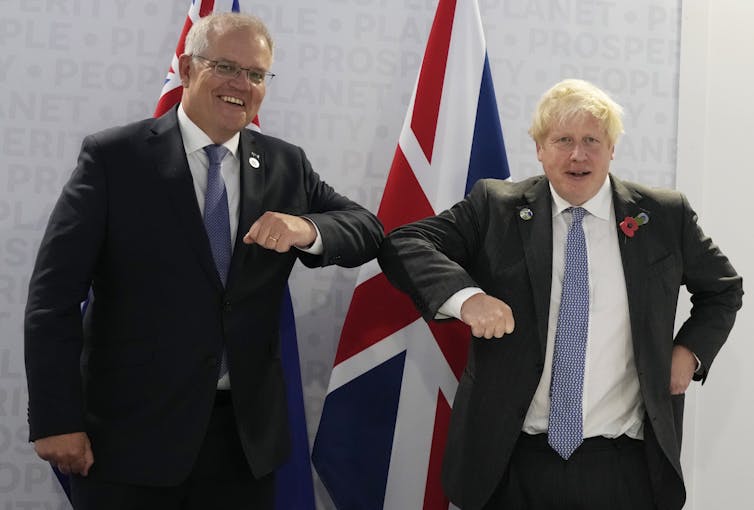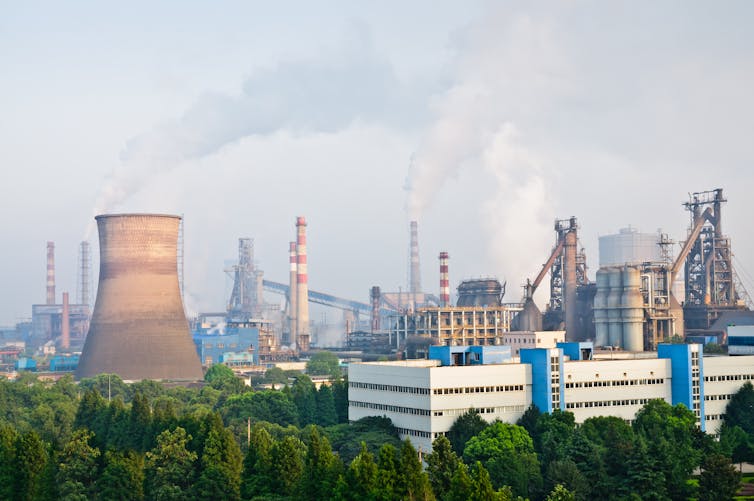LITTLE TO NOTHING
Climate change: What are the big polluters doing to cut carbon emissions?
By Reality Check team
BBC News
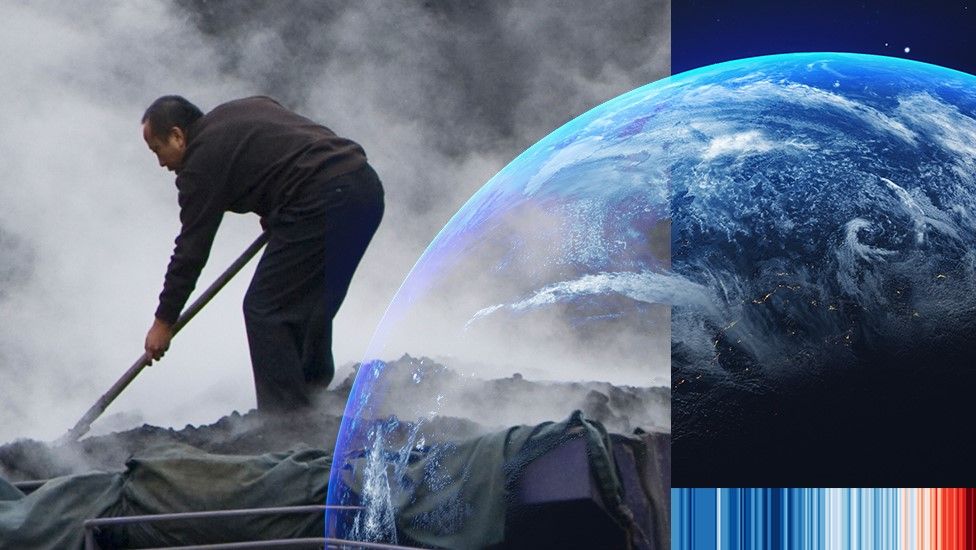
Just four countries plus the European Union are responsible for most of the world's emissions of carbon dioxide (CO2), which is the most common greenhouse gas responsible for global warming.
All five signed up to the Paris agreement in 2015 to cut emissions to limit global temperature rises.
What steps have they taken since?
China: The world's biggest emitter
- Says carbon emissions will peak in 2030
- Aiming for 25% of energy from non-fossil fuels by 2030
- Promises to be carbon neutral by 2060
Carbon neutrality refers to the balancing of overall carbon emissions with measures to absorb it from the atmosphere such as the planting of trees.
China is the largest producer of CO2, responsible for quarter of all global emissions. And its carbon emissions are still rising, largely because of a reliance on coal.
Last month, President Xi Jinping announced it would stop funding new coal-fired projects overseas.
But at home, coal mines have been ordered to ramp up production to meet surging energy demand, although Beijing has promised to cut back on coal use from 2026.
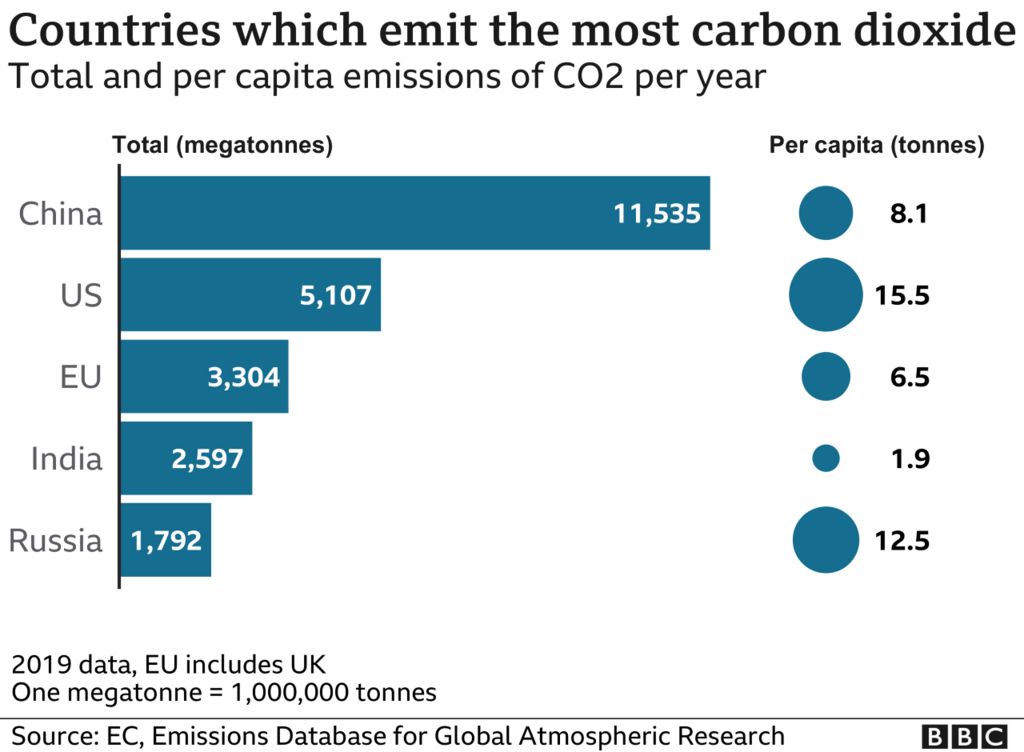
China has made progress on renewable energy - it now accounts for more than a third of all global solar power and is the world's biggest producer of wind energy.
But the country needs to cut demand for coal by more than 80% by 2060 to meet its climate goals, according to the International Energy Agency.
Climate Action Tracker, meanwhile, says China's policies and actions are "insufficient" - and if every country followed the same path it would lead to a global temperature rise of 3C.
US: The most emissions per person
- Will cut CO2 by at least 50% of 2005 level by 2030
- Wants half of new vehicles to be electric by 2030
- Promises to be carbon neutral by 2050
More than 80% of US energy comes from fossil fuels, although renewable energy sources are on the increase.
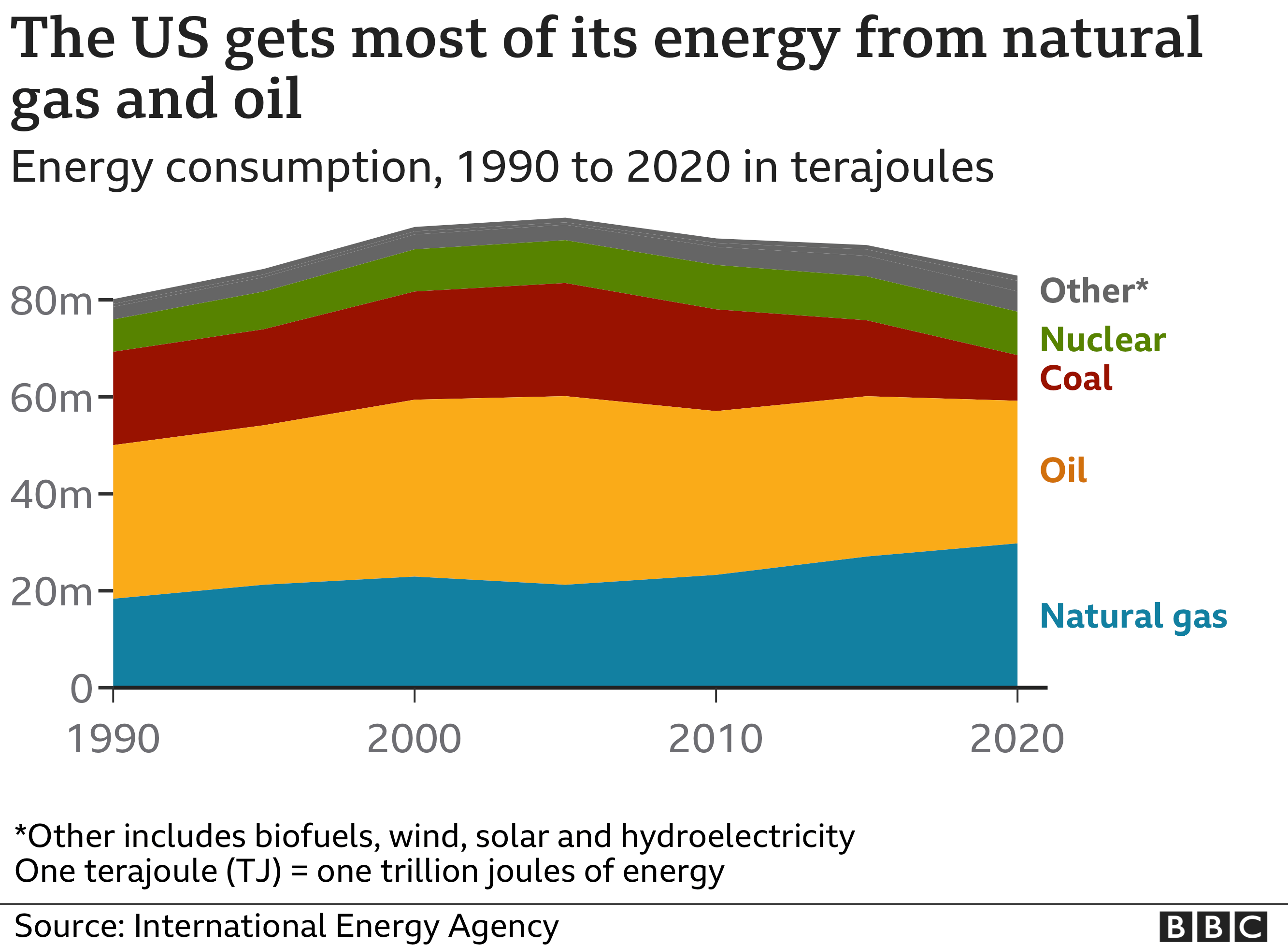
President Joe Biden's environmental plan looks to expand green energy further, with a $150bn (£100bn) clean-electricity programme to reward utility companies switching from fossil fuels.
But it has faced opposition from some US lawmakers concerned about the impact on the coal and fracking industry.
CO2 emissions have been dropping over the past decade.
But Climate Action Tracker says US actions and policies are "insufficient", needing "substantial improvement" to meet the Paris Agreement goal of keeping to a 1.5C increase in global warming.
The European Union: Emissions falling
- Promises a 55% emissions cut from the 1990 level by 2030
- Aiming for 40% of energy from renewables by 2030
- Will be carbon neutral by 2050
The top CO2 emitters in the EU are Germany, Italy and Poland.
And while it has overall emissions targets, EU states have differing financial and technical capabilities.
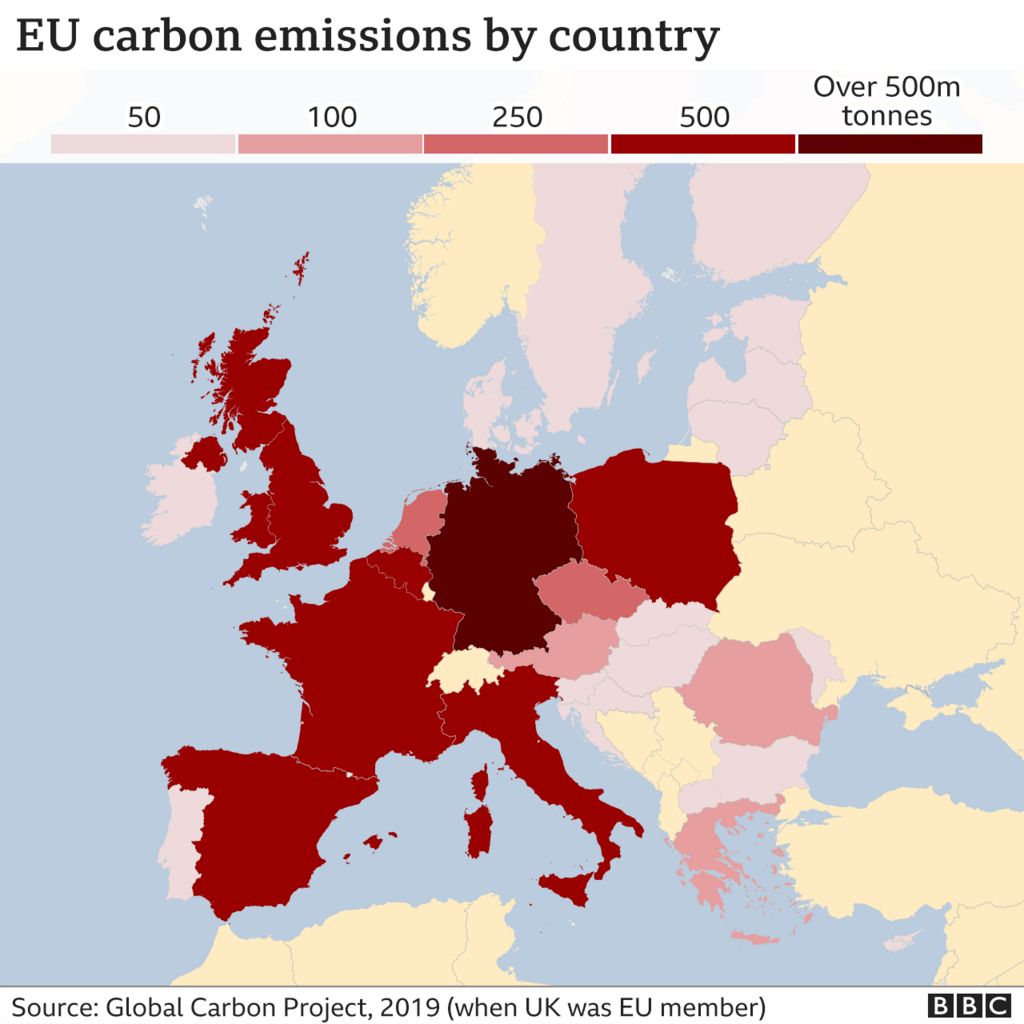
But all member countries need to agree how they reach the bloc's targets, as the EU negotiates as a single entity when it comes to the 2021 United Nations Climate Change Conference (Cop26).
Climate Action Tracker says its policies and actions are "almost sufficient" to keep the global temperature rise to less than 2C, noting emissions have been falling since 2018.
India: Reliant on coal
- Aiming for a 33-35% reduction in 'emissions intensity' by 2030
- Promises 40% of electricity capacity from non-fossil fuels by 2030
- Has not set a date for carbon neutrality
India's annual CO2 emissions have risen steadily in the past two decades - but it produces the lowest emissions per person among the top five.
India has argued the wealthier, more industrialised nations should bear more of the burden, as they have contributed far more to global warming over time.
And it has a target for "emissions intensity" - CO2 per unit of economic growth - saying this is a fairer way to compare with other countries.
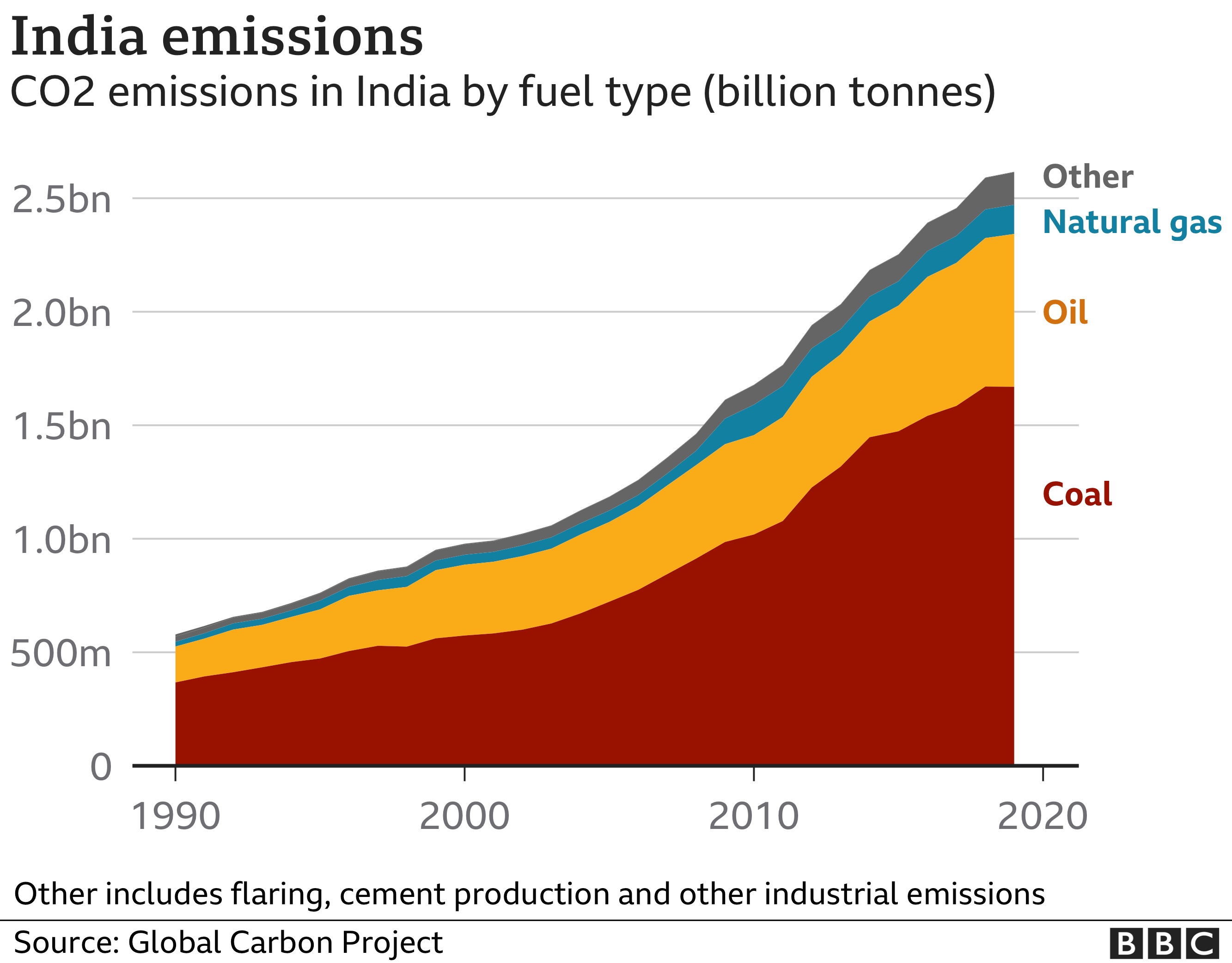
India has also promised a significant increase in energy production from non-fossil fuel sources such as wind, solar and hydro power - and in 2019, this had reached 23%.
And Climate Action Tracker says the country needs to phase out coal power generation before 2040 and boost its target for energy derived from non-fossil fuels.
Russia: Economy driven by oil and gas
- Will cut emissions by 30% from 1990 levels by 2030
- Promises to be carbon neutral by 2060
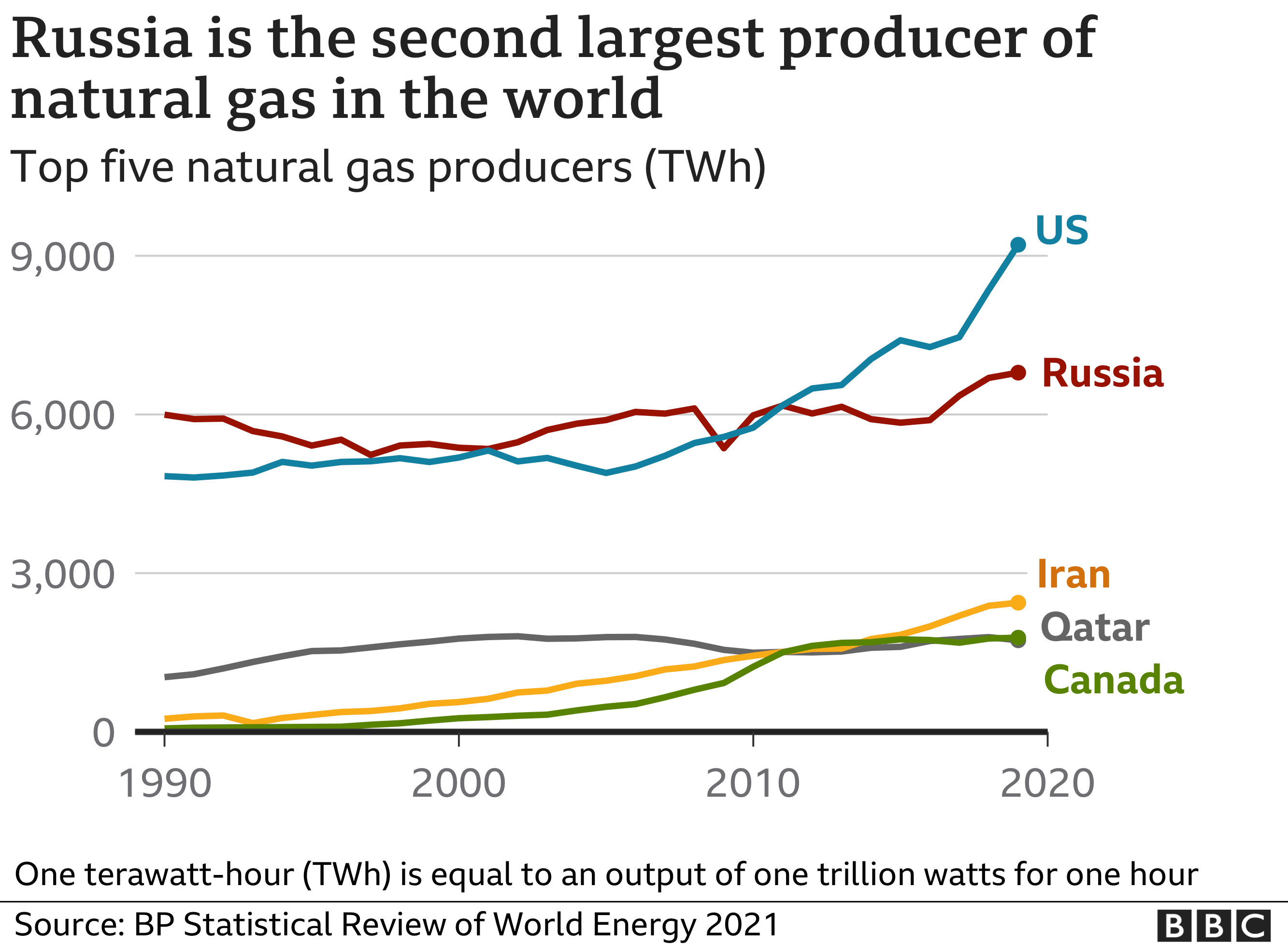
After the collapse of the Soviet Union, in 1991, Russia's economy - and its carbon emissions - shrank anyway.
But Russia is still relying on its extensive forests and swamps to absorb carbon.
Wind, solar and hydro power and other non-fossil fuels make up a small proportion of its total energy mix.
And fossil fuels contribute more than 20% of gross domestic product (GDP), the total value of goods and services produced in Russia.
Climate Action Tracker says the country's policies and actions are "highly insufficient" to limit global warming to 1.5C.
Reporting and research by Jake Horton, Shruti Menon, Daniele Palumbo and Kai Wang



